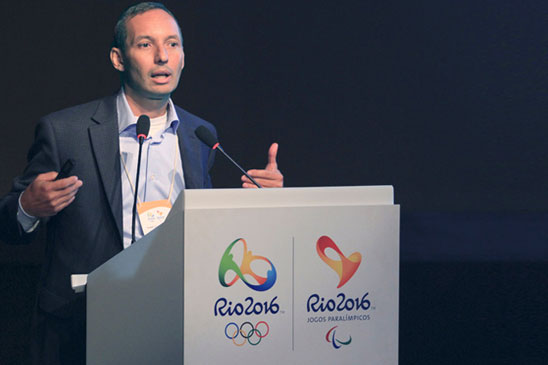Rio 2016: a marathon not a sprint
|
|
Henrique Gonzalez is HR Director for the Rio 2016 Olympic and Paralympic Games. He explains how the workforce has been put together over the last five years and why staff and volunteers are so engaged with the Games. |
Read time: 3 minutes | Published in Hays Journal 11
What have been the biggest challenges of organising the workforce for Rio 2016? How have these been overcome?
There have been many big challenges throughout the time a project like this takes. I started five years ago in a start-up context, recruiting leadership, building a culture, setting HR strategy, processes and systems, setting the workforce headcount and operation planning. Attracting, engaging and managing 70,000 volunteers has been one of the biggest challenges we have faced. After years of planning, we have had more than 250,000 candidates and more than 60,000 have already been selected in more than 15 selection centres all over Brazil. We have completed 22 test events with more than 8,000 volunteers. We are very confident and proud of the quality and passion these volunteers have to deliver the Games.
The workforces for previous Olympics have been hugely engaged. Why do you think staff feel so connected to their work on the Games?
The Games represent so many pure values in our minds. People think of peace between nations, education through sports, improving health habits, diversity and inclusion. This means they have a capacity to attract people who need to feel meaning in their work, fulfilling both their professional and personal interests. People who want to build a better world can easily connect their work to that goal.
Has it been difficult to attract top talent to positions that they know they will only hold for a relatively short amount of time?
We do not attract talent by money, nor by exponential career progression or stability. Those who are searching for these qualities at this moment of their career will not feel attracted to come to work for the Games. However, it is easy to attract talented individuals who deal easily with uncertainty, are adaptable, confident or who are looking for meaning in their jobs. Those whose careers are driven by learning, who want to build national and international networks and who wish to have unique stories to tell about their contribution to a historical and highly complex project are often a good fit.
You’ve previously worked in the corporate world. How has organising the workforce for the Olympics differed from your former roles?
We have the most diverse team I’ve ever seen. We have people who came from sports federations, event marketing, traditional corporate backgrounds, national and multinational companies from many different sectors and those from the public sector.
We have many talented people who were stars where they worked before, and are willing to do their best. The success here is based on integrated teamwork collaborations as well as internal and external partnerships.
What do you think the Games will mean to Brazil as a country? What legacy do you hope they will leave for both its workforce and the nation?
The Games will help our country’s development journey, showcasing Brazil’s capacity to organise and deliver a huge, complex project like this. The Games will also showcase our culture and develop our tourism potential, promoting Brazil as a nation that is proud to receive and welcome our visitors.
What are your plans professionally once the Games have finished?
I will take a few months to go sailing and after that, embark on some consultancy and coaching. I may also engage in another project as an executive. Either way, it will need to be something that will fulfil my values and my need for adrenaline.
| This interview is published in Hays Journal 11 |





